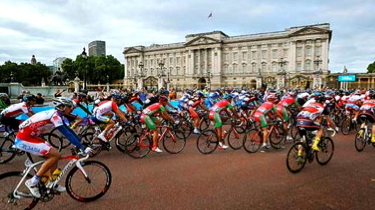Sport and Exercise Medicine: The UK trainee perspective (A monthly series on the BJSM blog)

With the countdown to the 2012 Olympic and Paralympic Games, ‘Test Events’ have started to take place throughout the UK. These are an integral and essential part of the preparation for any games — the London Prepares Series is a comprehensive programme that tests each sporting event.
These test events occur periodically throughout the year and have been in place since May 2011, testing the operational aspects of each venue, whilst at the same time promoting the already established venues around the UK and introducing the public to the new Olympic Park.
The London organising committee for the Olympic Games (LOCOG) has designed and implemented procedures for testing the organisation of the field of play, results and scoring systems, and medical and emergency procedures.
As a Sports and Exercise Medicine Registrar, I have worked at a number of different test venues throughout the summer. These events have provided hands-on experience of the medical preparation needed for major sporting events and engendered camaraderie among new colleagues from around the country.
The medical teams include physiotherapists, emergency practitioners, doctors, paramedics and sports masseurs, bringing together specialised skills and drawing upon individual expertise. At each test event, medical volunteers worked in teams and were prepared, with briefings at the start of each day, with protocols regarding acute on-site medical care, transportation of patients, and communication procedures. In keeping with the International Olympic Committee injury surveillance approach (1) medical documentation protocols were reviewed for ease of use by personnel and each team member was allocated medical responsibilities for both major and minor events.
Trauma scenarios were replicated on a daily basis, enabling medical teams to practise emergency response procedures and familiarise themselves with the safe transportation of patients and communication protocols. The additional logistics of trauma management at water venues highlighted situations many of us are unaccustomed to in our normal working environment.
From athletics to cycling, rowing to equestrian, the venues were spectacular; with the crowds supporting the test events, we got a sense of what was to come for 2012. The opportunity for Sports and Exercise doctors to be part of the home Games is a very rare experience and one, as a new specialist in SEM, I am very much looking forward to.
Richard Budgett, the Chief Medical Officer (CMO) for the Games, recorded a podcast for BJSM and this will be on the podcast site (see home page adjacent to Blog) shortly. (Before November 1st with any luck!). (It is currently being edited and approved by the IOC for release).
References
1. Injury surveillance in multi-sport events – the IOC approach, Astrid Junge, Lars Engebretsen, Juan Manuel Alonso, Per Renström, Margo L, Mountjoy, Mark Aubry and Jiri Dvorak. Br. J. Sports Med. published online 7 Apr 2008
*************************************
Dr Kate Hutchings is a specialist registrar in Sport and Exercise Medicine and a General Practitioner. Her interests include working in professional ballet and rugby.